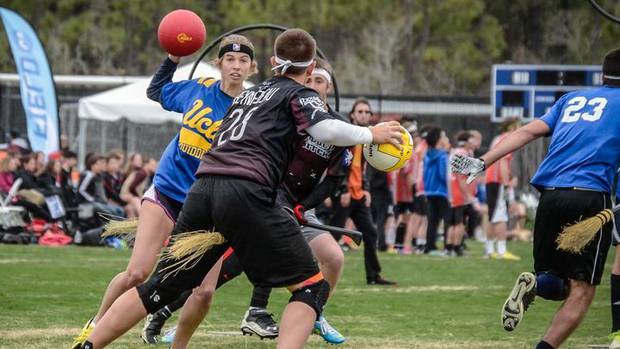Many know quidditch as the sport that’s played in the Harry Potter books, but it’s a sport that’s not only being played in real life, it’s growing markedly – especially among LGBTQ communities.
Quidditch – played without the broomsticks or flying golden balls – is a full-contact mixed gender sport that does not discriminate against gender minorities, and because of the highly tactical nature, does not benefit one gender over another
New Zealand quidditch player Emma Humphrey has moved to London in order to play the sport more competitively and regularly but says the sport is also growing in New Zealand.
“To a casual observer quidditch is very chaotic, but it can kind of be compacted down to two parts. The first part is the rugby part. You have four players on a pitch, eventually playing rugby and then you have two other players on the team are playing the dodge ball part,” she told Summer Report.
“So you essentially have quidditch as the combination of rugby and dodgeball on a field at the same time, but there’s a lot of tactics going on at the same time behind the scenes.”
She said competitive quidditch had been established with its own playing structures and worldwide following after being derived from the Harry Potty series five years ago.
“Quidditch started off based on the Harry Potter books a while ago and a couple of people in the United States, said ‘ah, I wonder if we could make this in a game’ and they did.
“And within five years the sport just took off to the point where now it’s become its own individual thing. It’s its own sport, with an international league, with world championships and national leagues, you name it.
“It’s the only full-contact mixed-gender sport. So when I say mixed-gender sport I mean male, female and everyone in between. So you’ve got trans, bisexual, agender, and people in transition as well. We do attract a lot of people from the LGTB-plus community.”
Asked why the fledgling sport was so popular with the LGBTQ community, she said: “Because generally when you look at most segregated sports they’re not given a platform to get some serious competition.”
New Zealand is sending a team to the world cup in the United States in July, where they’ll compete against 30 other teams
A camp is being held in Auckland next week for anyone interested in getting involved.





